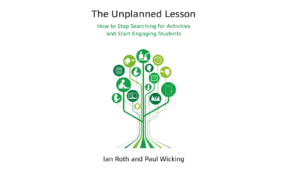by Pablo Dominguez
Let me say from the start, that I am a lover of puns and wordplay. I’ve always been. When I was 10 years old or so, I remember that my classmates would celebrate the puns I occasionally made up to poke fun at some unusual or unexpected event taking place in the school. Ever since then I continue to pun in my daily conversations with my family, or with anyone who, I think, will appreciate the amusement punning causes.
According to people who have researched the history and practice of puns, these are as old as the hills and have been used in all languages. No wonder, then, my coining of the pun-word puntheism that is, the belief that the Creator determined wordplay to be inborn in every human being.
The popularity of puns ebbs and flows like the whims of fashion.
The spirit of the present times is not, I’m afraid, favourable for them to flourish and grow if one bears in mind that publishers are rarely willing to take a risk on books of this nature. As a publisher confessed to me, “Unfortunately, and particularly in the UK, the publishing industry has been in decline due to the rise of digital media.” And yet, puns have great potential for current affairs, political and international issues, and above all for advertising; Puns sell, there’s no doubt about that. One can think of thousands of cases where puns are used to promote sales. And of course, puns are a valuable pedagogical tool in the teaching and learning of second languages. But of this, more later.
In the year 1979, José Luis Coll, a Spanish humorist and writer, published a dictionary of Spanish puns, Diccionario de Coll, a big hit that went through 27 editions and sold millions of copies. By altering slightly the spelling of already existing Spanish words, he managed to add subtle meanings to them producing hilarious results. Here are some examples: (I translated their definitions into English):
bandido > bandedo = bandit who points the finger to the victim after robbing him; democracia > demogracia = humour of the people; homicidio > homicindio = killing of an Indian by the 7th US Cavalry Regiment; estupidez > estupidiez = ten times stupid.
It was Coll’s dictionary that inspired me to do something similar in English, after making sure that indeed no other dictionaries of one-word puns had so far been published. To date, I still know of none. The only one which barely resembles such a work is John S. Crosbie’s The Dictionary of Puns (Futura, 1977) whose entries are not invented words, but real English words susceptible of wordplay, e.g. butter = She wanted to go, butter mother wouldn’t let her; juice = Population of Israel, etc.
So, eventually, I started off my project making a few puns every day, usually in the morning, sitting in my car at the beach all year round before going in for a swim. (Remember that I live in Tenerife). When I had gathered some 40 or 50, I wrote a letter to Professor David Crystal, whom I had met in London years ago when I was doing the Diploma course in the teaching of English as a Foreign Language. I asked him if he thought that my puns would appeal to native English speakers. His reply was that “not only to native but also to English speakers in general.”
Coming from such a distinguished linguist, his words boosted my confidence, and so I decided to keep on trying to make new puns, thinking not only that perhaps my contribution to the field might be of some interest, but also, and mainly because I had initiated a daily task that was most enjoyable.
To make the puns, I used to concentrate on each English dictionary entry in order to see what possibilities they offered of becoming puns by changing them slightly, so that they might keep their original form and pronunciation.
The pursuit of this punning enterprise demanded a lot of patience and was at times exhausting because not all words are good candidates for a pun. You can’t make a pun out of words such as “in” or “mat”. You have to discard them and look for words that contain at least four letters; both > boath = solemn promise made by two people; flute > floot = stolen wind musical instrument But it was a moment of indescribable pleasure to suddenly hit on a splendid, well crafted (at least for me) pun, like seafari = expedition to observe large mammals like dolphins and whales; discoarse = rough, vulgar speech; femail = letters sent or received by women; or rejoyce = enjoy re-reading Ulysses and Finnegan’s Wake.
I don’t know why I then decided to send an email to Rachel Abbot, an acclaimed British crime fiction writer whom I didn’t know at all. A shameless audacity on my part, I admit it. I sent her a few samples with the hope that she might guide me as to what steps to take next, should she find the stuff of interest. She very kindly wrote back inmediately (many thanks, Rachel) to say that my book was unique and because of that, the best approach was to find an agent who would advise me on the best type of publishing deal.
That I did, I wrote to an agent who seemed reliable, and also, almost overnight I had this response:
“As you will understand, we have to decline more than 98% of the submissions we receive, but your dictionary is not only outstanding, it is highly commercial and should have a wide appeal. I deal with several publishers who would, I believe, be most suitable and are highly likely to make an offer.”
You can imagine how excited I was with such favourable comments. I hastened to complete the manuscript, and when it was ready I waited for the agent to find a publisher who, as I was led to believe, would soon take up the editorial proposal.
Almost a year later, in view of the fact that nothing came out of it, I ended up publishing the manuscript on Amazon as Concise Punishing Dictionary for English Speakers. But by only publishing on Amazon, books are invisible to the book trade and are not carried by the book shops. So I submitted copies of my dictionary directly to a number of publishers in the field of humour, hoping that this time luck would go my way.
How wrong I was. All the publishers contacted politely declined to accept the manuscript. The reasons were various; it didn’t match what they were looking for, they didn’t seem to be able to market the work successfully or, simply, they thought they were not the right publishers for my project. And that, in spite of the positive reviews that it had got.
Making puns is a never-ending occupation if you really enjoy it. So I continued trying to “discover” new ones, and when I had assembled a reasonable number of them, I decided that the time had come to bring about a new edition. The result was my other Amazon Dictionary of One-word Puns, a title which reflects better the nature of its contents. Simultaneously, I began using my puns to compose, or should I say, comprose mini stories, which finally resulted in a new Amazon book, A Handful of Punning Mini Stories, foreworded by a well known celebritish Dr. Gyles Brandreth.
Here is a sample.
At the age of 5, little John showed an incredible predisposition to numeracy, something that psychologists confirmed was ineight in him; only that they did corrobolate this when he was 60 years of age and about to retire. He was the envy of all his friends for his compittance to manage with little money, but one day he met Andrea, the daughter of a pillionaire, and while rowing together on a boat, they had a rowmance which soon after led to matrimoney.And they lived happily ever after, of course!
Earlier on, I referred to the use of puns in the teaching and learning of a foreign language, but I don’t want to spend much time on this topic, since there is already a large literature about their potential to encourage creativity. Suffice it to say that my students were delighted to play competitions in class by trying to make a good pun themselves, or by trying to write a mini story like the one above using two, three or four puns taken from my dictionary.
Following is an example:
Prohabit = forbid the tendency to act in a particular way
Persihioner = church goer in danger of having an accident or being killed
If you prohabit addicted perishioners to church from attending religious services, they may also risk dying, but of grief.
Another popular exercise was to give them a list of English words and they had to guess what the pun behind the definition that followed was:
Andes = women’s underwear to use on the longest mountain range of the world. (“andies”)
Antipathy = strong dislike of tea. (“anteapathy”)
Conductor = medical person who directs an orchestra on weekends (“condoctor”)
Evidence = life proof of dancing ability (“evidance”)




